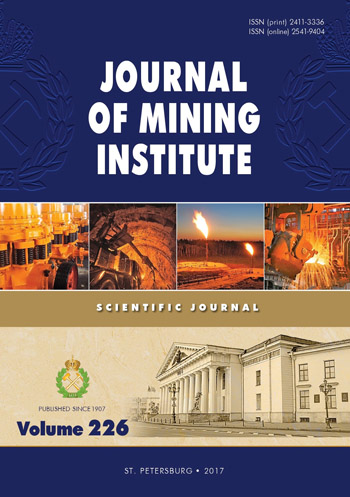Legal challenges of the new energy policy in Germany
- Ph.D., Dr.Sci. Professor University of Hamburg
Abstract
German Energiewende has substantially changed the electricity mix in Germany. Green electricity from wind, solar, water and biomass now provides the largest contribution to the total electricity consumption. In this respect, Energiewende can be regarded as an overall success. But in parallel to this scenario, a critical discourse has evolved concerning socio-political, economic and legal issues. The congruence of objectives and measures – for example, in regards to ensuring security of supply, expansion of electricity networks, development of electricity price and environmental consequences – in the course of expansion of electricity generation from renewable sources is the main focus of socio-political and economic discussions. Accelerated phase-out of nuclear energy and constitutional disputes regarding the legality of national orientation of the promotional scheme for green electricity in respect to the integration of German electricity sector in the European internal market for energy are in the centre of the debate and have a remarkable impact on the energy policy in Russia as well. Against this background, present article examines the contribution of German Energiewende to the resolution of complex challenges of the developed industrial society.
References
- Bickenbach C. Die Finanzierung der «Energiewende» in der Zwickmühle aus Finanzverfassung und Art. 107, 108 AEUV // Die Öffentliche Verwaltung. 2013. Vol. 24. P. 953-961.
- Degenhart C. Gesetzgeberische Sorgfaltspflichten bei der Energiewende. Nomos Verlagsgesellschaft mbH & Co. KG, 2013.
- Di Fabio U. Kernenergieausstieg 2011 / U.Di Fabio, W.Durner, G.Wagner. Nomos Verlagsgesellschaft mbH & Co. KG, 2013. P.9.
- Gawel E. Die EEG-Umlage: Preisregelung oder Sonderabgabe? // Deutsches Verwaltungsblatt (DVBl.). 2013. Vol. 128. № 7. P. 409-417.
- Kloepfer M. 13. Amendment of the Atomic Energy Act and fundamental rights // Deutsches Verwaltungsblatt mit Verwal-tungsarchiv. 2011. Vol. 126. №. 23. P. 1437-1446.
- Kloepfer M. Die Laufzeitverlängerung im Atomrecht zwischen Gesetz und Vertrag / K M.loepfer, D.Bruch // Juristen Zeitung. 2011. Vol. 66(8). p. 377-387.
- Kröger J. Die EEG-Umlage ist keine Sonderabgabe – zugleich Anmerkung zu OLG Hamm, Urteil vom 14. Mai 2013 – 19 U 180/12 // Zeitschrift für Umweltrecht. 2013. Р. 480-483.
- Ludwigs M. Die Energiewende im Zeichen des Europa-und Verfassungsrechts // RW Rechtswissenschaft. 2014. Vol. 5. № 2. P. 254-276.
- Nebel J.A. Das Eigenverbrauchsprivileg des EEG 2014 im Kontext des EU-Beihilfeverfahrens und der Umwelt- und Ener-giebeihilfeleitlinien 2014 – 2020 // Neue Zeotschrift für Verwaltungsrecht. 2014. Vol. 14. Р. 765-770.
- Manssen M. Die EEG-Umlage als verfassungswidrige Sonderabgabe // Die Öffentliche Verwaltung. 2012. Vol. 24. Р. 499-503.
- Müller T. Das neue EEG 2014 – Systemwechsel beim weiteren Ausbau der Erneuerbaren Energien / T.Müller, H.Kahl, F.Sailer // Energierecht. 2014. Vol. 4. Р. 139.
- Ohms M. J. Recht der Erneuerbaren Energien: Klimaschutz im Wirtschaftsverwaltungsrecht. Verlag CH Beck, 2014.
- Ossenbühl F. Verfassungsrechtliche Fragen eines beschleunigten Ausstiegs aus der Kernenergie. Nomos Verlagsgesellschaft mbH & Co. KG, 2012.
- Rechtliche Rahmenbedingungen für die Reform der Förderung erneuerbarer Energien in Deutschland / M.Paschke, U.Büdenbender, K.F.Gärditz, M.Ludwigs, W.Löwer, P.-T.Stoll, R.Wolfrum. In Wolfrum (ed.). Berlin, 2014. 42 p.
- Pielow J.-C. Die Energiewende auf dem Prüfstand des Verfassungsund Europarechts // Europäisches Umwelt- und Pla-nungsrecht. 2013. Vol. 11. Iss. 3. Р. 150-165.
- Säcker F. (ed.). Energierecht. 3rd edition. R&W, 2014. Vol. 2
- Salje P. EEG. Kommentar. 6th edition. Carl Heymanns Verlag, 2012, Introduction, § 33g. P. 13 ff.
- Salje P. Regulierung in der Energiewirtschaft Chapter 34 / J.F.Baur, P.Salje, M.Schmidt-Preuß. 2011. Р. 497-501.
- Schmidt-Preuß M. Das Erneuerbare-Energien-Gesetz: Aktuelle rechtliche Fragen und Probleme. In: Klees A., Gent K. Festschrift für Peter Salje. Carl Heymanns Verlag. 2013. P. 397-401.
- Schneider J.-P. In: Schneider/Theobald (ed.). Recht der Energiewirtschaft. 4th ed. 2013, § 21. P. 1245-1325.
- Wieland J. Verfassungsfragen der Beendigung der Nutzungder Kernenergie // Zeitschrift für das gesamte Recht der Ener-giewirtschaft. 2013. Vol. 6. P. 252-.259.
- Vergoßen J. Das Einspeisemanagement nach dem Erneuerbare-Energien-Gesetz. Nomos Verlagsgesellschaft mbH & Co. KG, 2012.
- EG Directive 2009/28 from the 23rd of April 2009. ABl. N L140, p. 16.
- 2009 Directive/72/EG from the 13th of July 2009. ABl. N L211, p. 55.
- Third Law regarding the amendment on power supply from the 20th of December 2012. BGBl (Federal Law Gazette). 2012-I, p. 2730.
- Grid Expansion Acceleration Act (NABEG) from the 28th of July 2011. BGBl (Federal Law Gazette). 2011-I, p. 1690.
- Act from the 21st of July 2014. BGBl (Federal Law Gazette). 2014-I, p.1066.
- Act on the controlled termination of the use of nuclear energy in the commercial generation of electricity from the 2nd of April 2002. BGBl (Federal Law Gazette). 2002-I, p. 1351.
- Cf. eleventh Amendment of the Atomic Energy Act of the 8th of December 2010. BGBl (Federal Law Gazette). 2010-I, p. 1814.
- Cf. thirteenth Amendment of the Atomic Energy Act of the 31st of July 2011. BGBl (Federal Law Gazette). 2011-I, p. 1704.
- Act on Granting Priority to Renewable Energy Sources (Renewable Energy Sources Act – EEG) from the 28th July 2011. BGBl (Federal Law Gazette). I-2011, p. 1634.
- Federal Government. Energy Concept for an Environmentally Sound, Reliable and affordable supply of energy on 28/09/2010, available at: URL: www.bundesregierung.de/ContentArchiv/DE/Archiv17/_Anlagen/2012/02/energiekonzept-final.pdf?__blob= publi-cationFile&v=5
- BGBl (Federal Law Gazette). 1990-I, p. 2633.
- Federal Ministry of Economics and Technology. Die Energiewende in Deutschland (The energy transition in Germany), 2012, available at: URL: www.bmwi.de/Dateien/BMWi/PDF/energiewende-in-deutschland, property=pdf,bereich=bmwi2012,sprache=de, rwb=true.pdf
